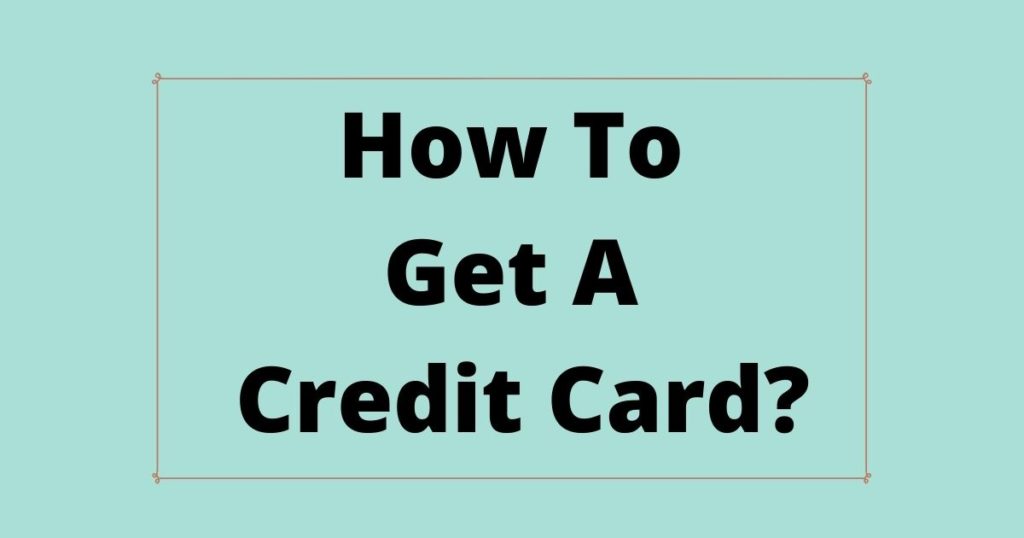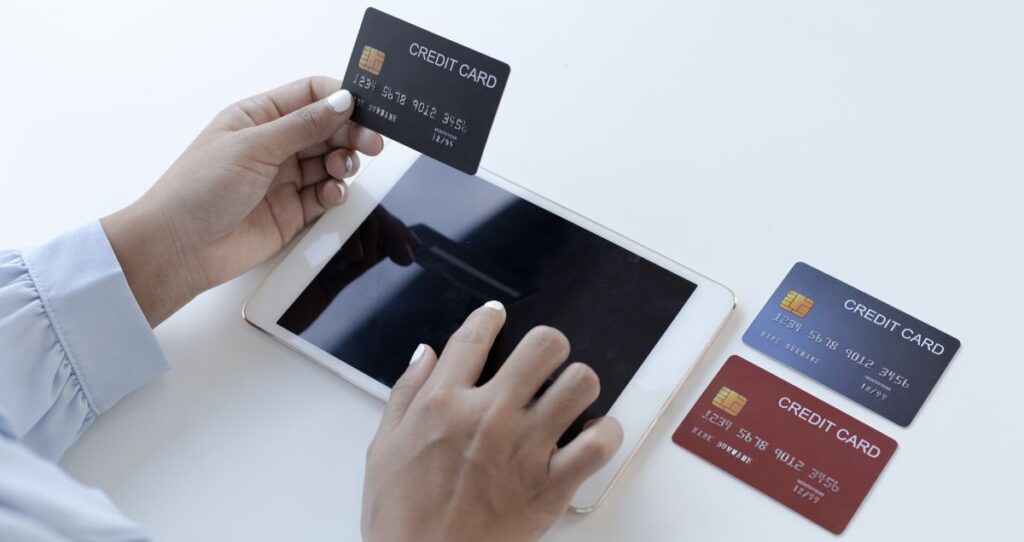Many people carry credit card balances due to financial hardships and excessive spending. Others, however, never pay their credit cards if full because they don’t understand what happens when you carry a credit card balance. No matter your financial situation, you should avoid carrying a balance on your credit card. This is because you end up paying high-interest charges on the amount you did not pay on time in a form of an annual percentage rate(APR). In addition, the balances you carry to the next payment cycle become your credit utilization which might lower your credit score. Furthermore, when you carry a credit card balance your risk of accumulating credit card debts goes higher. Lenders might also deny you credit when you carry a large balance on your credit cards.
The balance you carry on your credit card does not necessarily come from using your credit card. Other factors can also lead to an increase in your credit card balance. For example, balance transfers, cash advances, fees, accrued interest, and other charges can also increase the balance on your credit cards.
Credit card issuers require that you pay a minimum monthly payment and let you carry the rest. When you carry a credit card balance, you end up paying interest based on the terms of your credit card. You will also pay a late payment fee if you don’t make a successful payment (pay at least the minimum payment) by the due date.
What happens when you carry a credit card balance?
There are times when you may not be able to pay all your credit balance in full. Any amount you don’t pay on time will be carried to the next payment period. You will then be charged interest in a form of APR on the amount you did not pay by the due date.
Your credit utilization will also go higher due to carrying a large credit card balance. Having a higher credit utilization will lower your credit score and affect your chances of qualifying for more credit. Unless you have a large income to make your payments, a large credit card balance will lead to late payments, charge-offs, or default on your credit card debts. These negative items on your credit reports will hurt your credit, lower your credit score, and stay on your credit reports for 7 years.
You might also like: How to negotiate your credit card debt?
Credit card minimum payment vs. Credit card balance vs. statement balance
- Statement balance. Your credit card statement balance is the total amount on your credit cards by the end of the billing cycle. This amount includes the amount you carried over from past months, what you spent during the current month, and any accrued interest and charges. This amount is what gets reported to major credit reporting bureaus(TransUnion, Equifax, and Experian) and reflected on your credit reports.
- Credit card minimum payment. This is the minimum payment you must pay before the due date to avoid a late fee. When you carry a balance on your credit card, your card issuer will require that you pay a small portion of your balance to avoid late fees and charges. The higher your credit card balance goes, the more the minimum payment will be.
- Credit card balance. This is the amount you owe the card issuer at any point in time. This amount includes accrued interest, late fees, and balances you carried from past months. If you did not use your credit card or paid it off in full, your credit card balance will show $0.
Should you carry a credit card balance?
No. You should never carry a credit card balance. This is because interest gets applied on any amount you did not pay by the due date. In addition, your balance will be reported on your credit reports and might affects your credit score. The best way way to protect your credit and avoid financial troubles is to pay your credit card balances in full at the end of each month.
There are times when your financial situation might not allow you to pay your balances in full. For example, if you recently lost one of your jobs and have a higher credit card balance for the month, the remaining income might not cover your entire balance. As a result, you will more likely cover a small portion of your balance.
In this case, pay as much as you can and start tracking your credit card expenses. Since you are carrying a balance already, it is a good idea to lower your card spending. Excessive credit card spending will lead to higher credit utilization which will lower your credit score.
You can lower your credit utilization by either requesting a credit limit increase and/or paying higher than the minimum payment.
What is a good utilization rate?
Credit cards come with a lot of spending temptations. Unless you take care of your finances, track your credit card spending activities, and pay your bills on time; you might end up using most of your credit limit. This will lead to a higher credit card balance and harder to pay it off at the end of the month.
The amount you have spent compared to the available credit card limit is your credit utilization ratio. A higher ratio indicates that you are relying on debt to cover your expenses which makes you a risky borrower. As a result, your credit score will take a hit from a higher credit score and credit card issuers will deny you more credit cards. Higher credit utilization will also increase your debt-to-income(DTI) ratio which might disqualify you from other forms of loans such as mortgages, car loans, personal loans, etc.
Keeping your credit utilization low is always the best way to better use your credit cards.
The question is, what is a good credit utilization and how low your utilization should be?
Paying off your credit card balances in full is always a smart financial move. A $0 balance on your credit cards will lead to 0% credit utilization. But, you are probably not aiming for a $0 balance on our credit cards.
From my personal experience, the best credit utilization is anything under 10%. If you can bring your utilization ratio to under 6%, it would be even better. This ratio is easy to pay off and does not have a big impact on your credit score.
Most lenders and experts suggest that you keep a credit utilization of 30% or lower. However, carrying that much credit card balance does not benefit you at all. Only your card issuers will benefit when you carry a balance on your credit cards.
Always remember that you pay APR on the amount you carry. By carrying 30% of your balances, you end up paying a lot of money in interest especially when you have a higher credit limit.
How to lower your credit utilization?
There are three effective ways you can use to lower your credit utilization.
- Request a credit limit increase. Most credit card issuers will automatically increase your credit limit after using your credit card successfully. You can also request a credit limit increase by calling your card issuer or submitting an online request.
- Apply for another credit card. One way to lower your credit utilization is to apply for another credit card. The new card will come with its own credit limit which will increase your overall credit limit. Since your credit utilization is a percentage of your overall credit limit, an increase in your credit limit will result in lowering your credit utilization ratio. Keep in mind that applying for another credit card will result in a hard inquiry on your credit reports which will knock off a few points from your credit score.
- Aggressively pay off your credit card balance. This is one of the most effective and less risky ways to lower your credit utilization. By paying off your credit card balance fast, you automatically lower your credit utilization and lower the risk of credit card debts. So, instead of paying the minimum requirement, bump up your monthly payments.
What is a good credit card balance?
By default, carrying a credit card balance might hurt your credit score. And, there is no such thing as a good credit card balance. This is because you pay interest on the balance you carry which makes you poor while your lender gets richer.
Some people think that by paying interest on your monthly payments, you get a boost to your credit score. This is not true. Your credit score is not based on how much interest you pay or your income.
Your credit score(FICO score or Vantage Score) is based on your behavior and account activities rather than the interest you paid. Matter of fact, carrying a balance on your credit cards might lower your credit scores due to higher credit utilization.
What affects your credit score?
Your credit score is based on a few factors and all of them have something to do with your account activities and how you handle your bills.
- Payment history. Your payment history is the biggest factor in your credit score calculation. Payment history affects 35% of your FICO score and 40 of your Vantage Score.
- Credit Utilization. This is how much you spent compared to the available credit limit. Your credit utilization affects 30% of your FICO score and 20% of your Vantage score.
- Age of your credit. How long you have been a credit user affects your credit scores. The age of your credit affects 15% of your FICO score and 21%(age of credit and credit mix) of your Vantage score.
- Hard inquiries. Hard inquiries affect your credit score by 10%.
- Credit mix. Credit mix affects your FICO score by 10%. Your Vantage score also considers available credit for 3%, recent credit for 5%, and balances for 11%.
How to properly use credit cards?
Credit cards are some of the best tools you can use to lower your expenses through different perks, build a credit history, and improve your credit score. Credit cards can also help you cover your expenses while turning your finances around.
Carrying a large credit card balance, however, can lead to paying higher interest rates. In case, you cannot pay your balances soon enough, you might end up accumulating a lot of credit card debt and wrecking your credit.
So, how can you properly use your credit cards?
To avoid the risk of financial disaster due to credit cards, make sure that you track your credit card expenses. Also, pay your credit card balance in full at the end of each payment period.
If you cannot carry a $0 balance on your credit cards, at least, maintain a lower credit utilization at all times. Avoiding excessive credit card expenses and only buying things you need is a smart way to use credit cards. You should also avoid getting too many credit cards to avoid higher credit limits than necessary and hard inquiries. Always treat credit card lines of credit as debt rather than money that is ready to spend.








